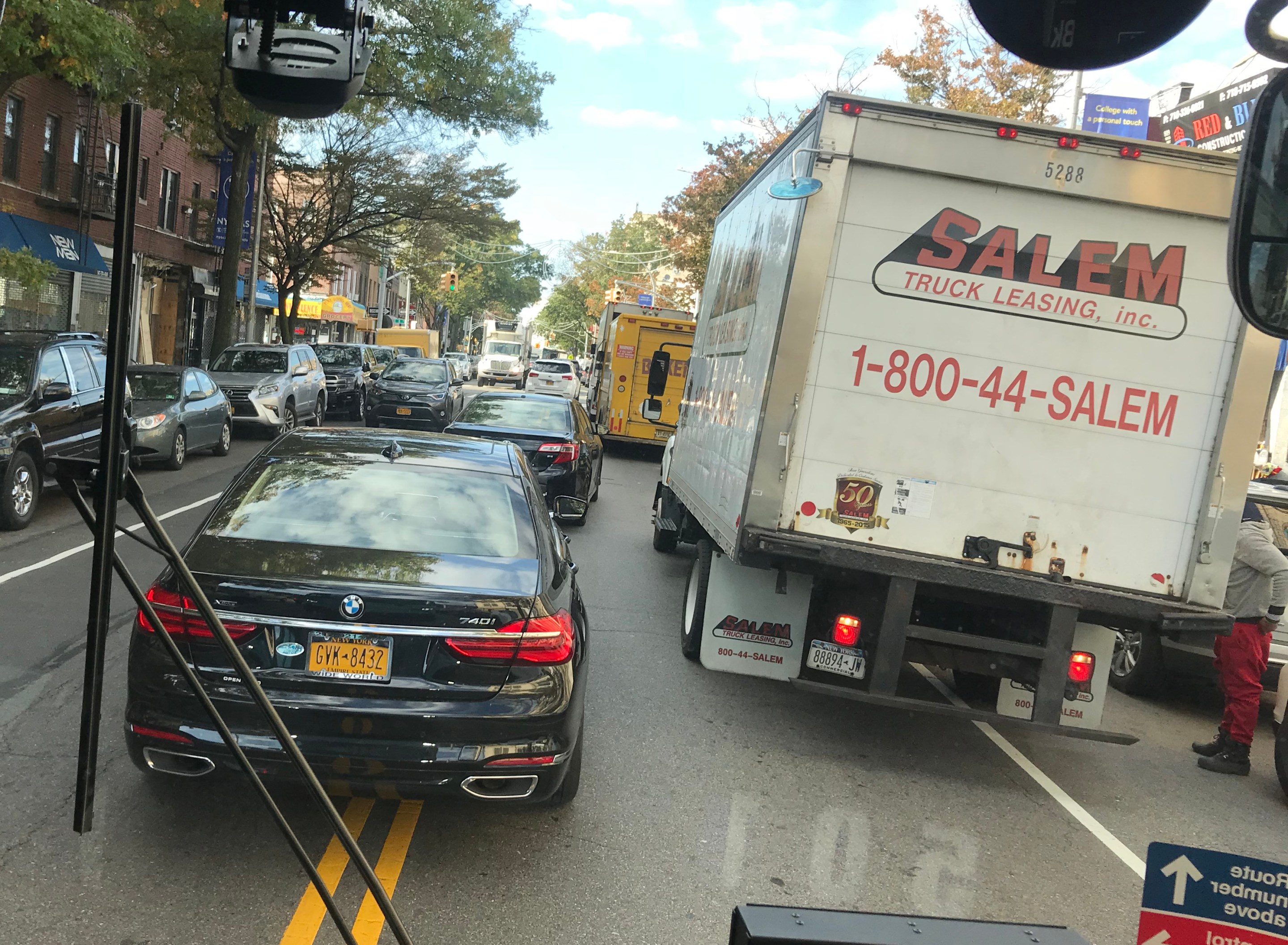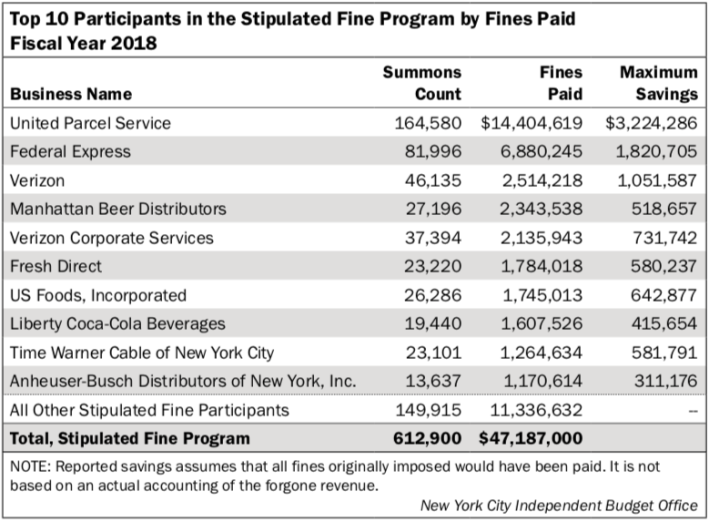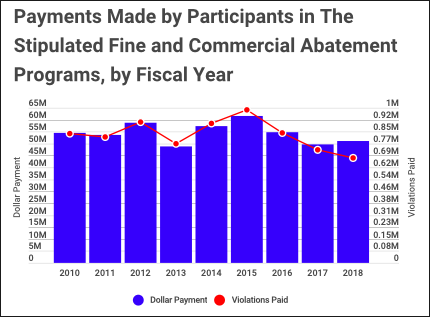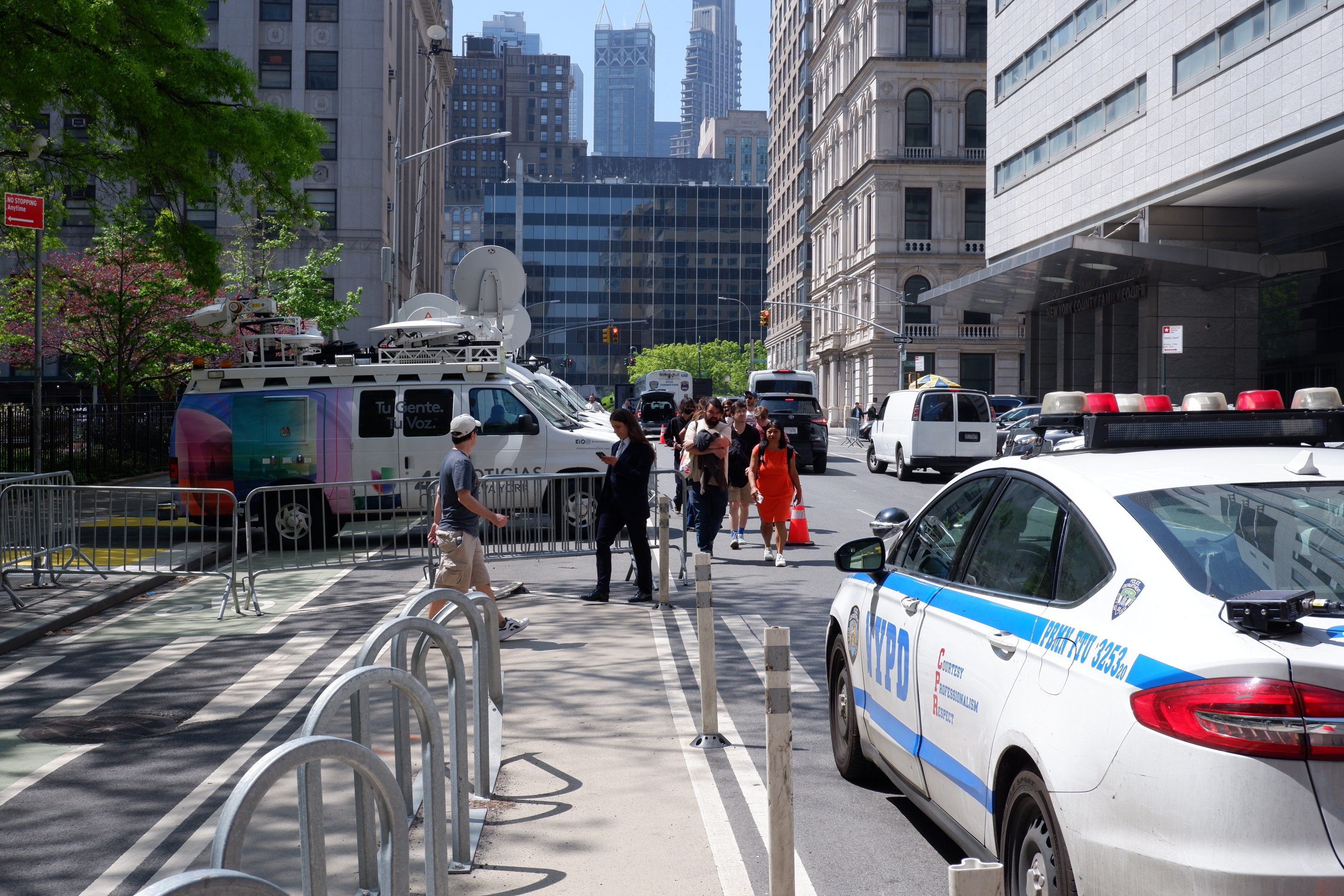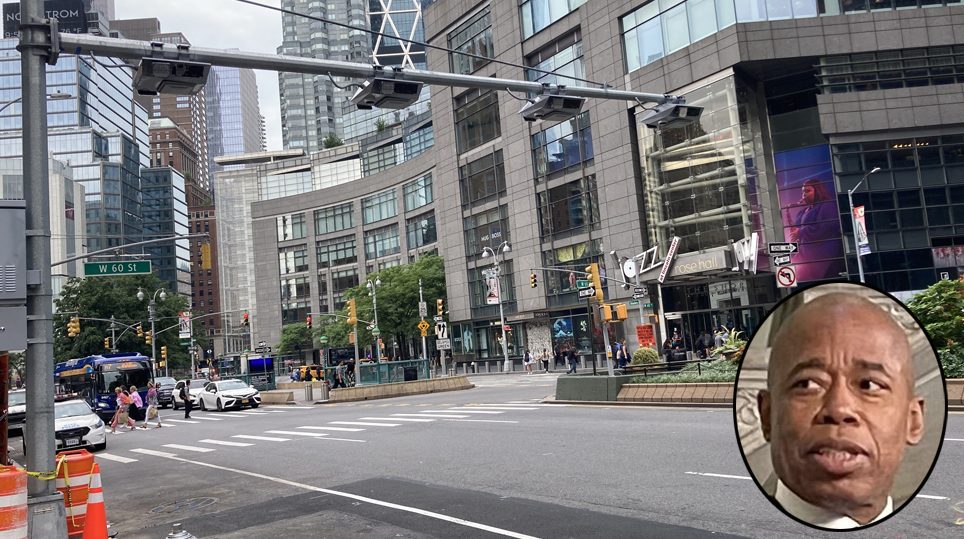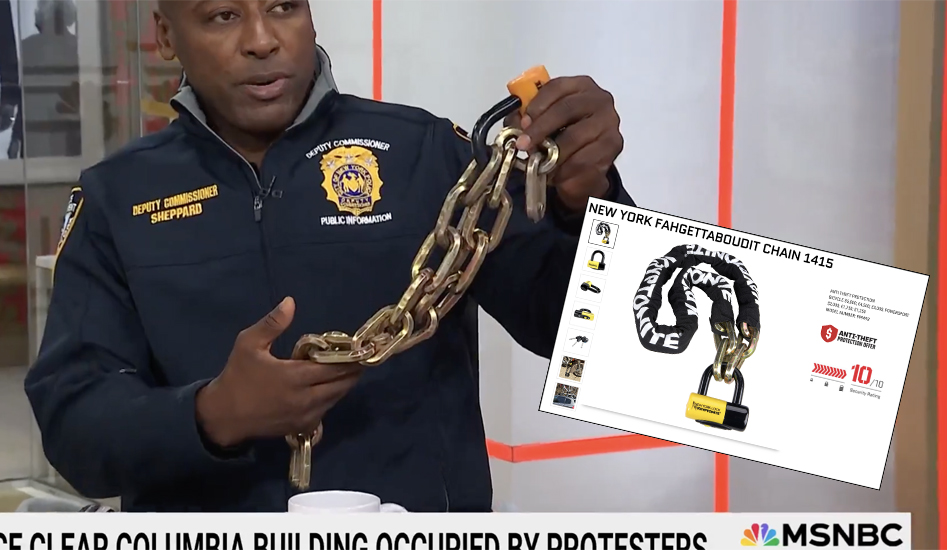The city is losing millions of dollars every year under its ongoing program that reduces — and, in some cases, completely eliminates — illegal parking tickets on major trucking companies, a new report argues.
Overall, companies such as FedEx, UPS, Fresh Direct and many other truckers paid $47,187,000 in summonses last year thanks to the city's Stipulated Fine Program, but the Independent Budget Office said the arrangement "saved the 10-most heavily fined [trucking] firms as much as $10 millions on their summonses." [PDF]
IBO Director of Budget Review Jonathan Rosenberg said he could not put an exact figure on how much the city is losing because under the Stipulated Fine Program, participating companies agree to not challenge tickets in court in exchange for dramatically reduced fees on each ticket.
Advocates say the city should bite the bullet: get rid of the program and hire more hearing officers to adjudicate the tickets.
“The IBO report vindicates that New York City is losing millions of dollars that could be used to hire more traffic court judges, end the ticket backlog — and still have plenty left over,” said Council Member Costa Constantinides of Queens, who has called for the elimination of the so-called scofflaw slide. "The Stipulated Fine Program is simply the cost of doing business for many big-box delivery companies."
The reduced fines — a $115 double-parking or no-standing ticket is knocked down to a mere $35, for example — not only save the companies millions, but increase the incentive to illegally park virtually everywhere. The IBO report suggests that the city isn't getting enough benefit to justify the safety hazards and congestion caused double- and illegally parked trucks.
"[They] get a free pass to block our cramped streets at the expense of our safety," Constantinides added. "It’s far too often that pedestrians and cyclists have to go around idling trucks — which also send harmful, toxic exhaust into the air — unsure of what’s coming around the other side.
"Ending this program is a bold step in making our streets livable," he concluded.
Others have called for the city to create more loading zones by ending the practice of allowing car owners to store their vehicles — for free — for most of the day along virtually all residential curbsides. That practice is commonly referred to as "parking," but it represents a multi-million subsidy to car owners at the expense of drivers in motion, cyclists, pedestrians and delivery workers.
The IBO reported that the number of summonses written by police has plummeted since a high of more than 986,600 in 2015, down to 678,100 last year, a drop of 31 percent. The report does not say why, but the drop in tickets could stem from a lack of incentive on the part of officers to write summonses when they know the violator will automatically pay a dramatically reduced amount.
In December, the Department of Finance, which created the Stipulated Fine Program 15 years ago, did increase the fines for each type of violation — reducing the number of $0 fines from 19 general categories to just two — and says it now expects the programs to generate $11 million more this fiscal year than it did in 2018.
Rosenberg is dubious.
"The impetus behind doing this report was that $11-million figure," he said. "I did a quick look at it and I do not believe they will raise that much on the small change in the fine structure." [Rosenberg says he will release a full report on that later this year. Streetsblog has promised him the front page if he gives it to us first.]
After initial publication of this story, Department of Finance spokeswoman Sonia Alleyne sent over this statement:
The Stipulated Fine Program does not reduce parking fines. Participants waive their right to a hearing where they could present commercial defenses from New York City’s parking rules [legalizing] expeditious deliveries. In exchange, they pay the expected outcome if a hearing were to be held. In December, DOF significantly increased the fine schedule to reflect our concern with congestion-related violations. Companies are now paying 27 percent more; over $14 million annually. The new payment schedule has increased the payment for 46 violation types.”
